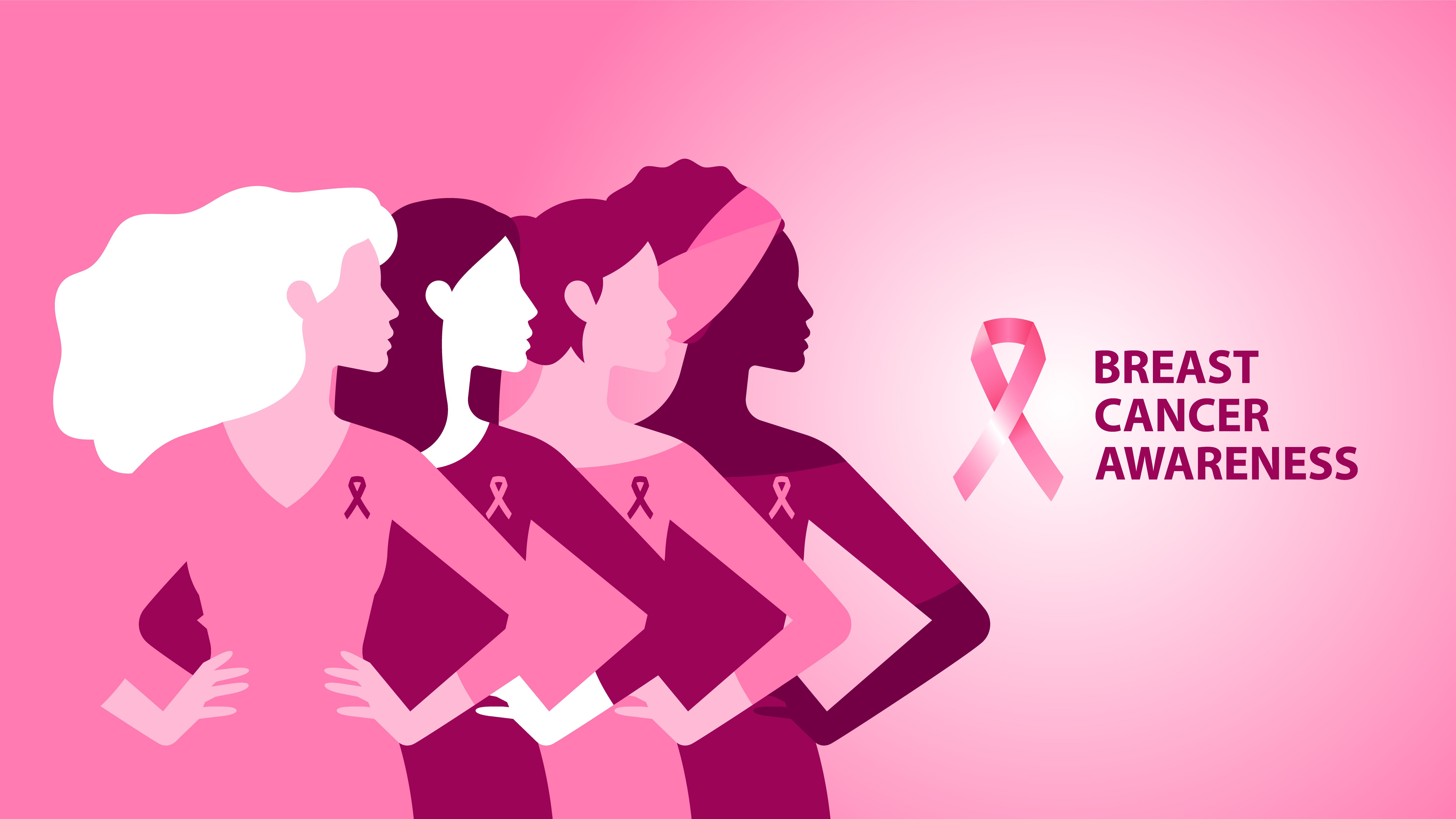BE AWARE: Steps Women Can Take to Lower Risk of Breast Cancer
October has been designated “Breast Cancer Awareness Month,” and provides us with the opportunity to focus on risk reduction, screening, and education about steps women can take to lower their risk for breast cancer. I encourage woman to B.E. A.W.A.R.E of the following recommendations to lower risk for breast cancer.
This blog was originally published by our partners at Mass General Brigham, submitted by Amy Comander, MD, Director of Breast Oncology and Survivorship, Mass General Cancer Center at Newton Wellesley and Waltham
Breast cancer screening is key
The most important message for “Breast Cancer Awareness Month” is that mammography is our best screening tool for breast cancer. The goal of mammographic screening is to identify a cancer early, when it is easier to treat, and before it has a chance to grow or spread. Research has shown that screening mammography improves survival from breast cancer. Please do not let fear of COVID-19 prevent you from getting your annual mammogram. In fact, some of my patients have told me that they were relieved that mammographic screening seemed more efficient and streamlined than before the pandemic.
Educate yourself
Knowledge is power, and it is important for women to be educated about key facts about breast cancer. One in eight women in the U.S. will develop breast cancer in their lifetime. Breast cancer is the most commonly diagnosed cancer in women in the United States (excluding skin cancers), and it is the second leading cause of death among women, after lung cancer. In 2021, an estimated 280,000 new cases of breast cancer will be diagnosed in women. I encourage women to BE AWARE of these important facts about breast cancer.
Incorporate an active lifestyle
Increasing evidence demonstrates that lifestyle factors play a role in risk for development of breast cancer. Studies also suggest that physical activity may reduce risk for breast cancer, particularly in postmenopausal women. In 2020, the American Cancer Society published updated guidelines regarding the role of physical activity for cancer prevention:
- Adults should engage in 150‐300 min of moderate‐intensity physical activity per week, or 75‐150 min of vigorous‐intensity physical activity, or an equivalent combination
- Limit sedentary behavior, such as sitting, lying down, and watching television, and other forms of screen‐based entertainment.
We are fortunate to have a beautiful Fall season here in Massachusetts. I encourage my patients to get outside, and walk! Any increase in physical activity during the day, such as walking, taking the stairs when possible, and avoiding prolonged sitting, is beneficial for overall health.
Women can help other women
During the COVID-19 pandemic surge, many women had their mammograms postponed and have not yet rescheduled their tests. I encourage women to help other women, and remind a sister, mother, or friend to schedule her screening mammogram. The Mass General Brigham system has a ‘Safe Care Commitment’ to ensure we are safe and ready to see our patients. Our hospital is following all COVID-19 safety requirements including face mask wearing and socially distancing, and our staff conduct COVID-19 screenings for all patients and employees entering our hospitals.
Advances in treatment
Researchers around the world are always striving to find better ways to prevent, detect, and treat breast cancer, and to improve the quality of life and outcome of breast cancer survivors. There have been many exciting treatment advances over the years, and these approaches have resulted in dramatic improvements in overall survival from breast cancer. We are proud of the exceptional care that we provide for women newly diagnosed with breast cancer at Newton-Wellesley Hospital. All women diagnosed with breast cancer at our hospital receive a multidisciplinary approach to care, which involves a consultation with one of our breast surgeons, a radiation oncologist, and a breast oncologist. Our multidisciplinary team includes a team of cancer experts from the Mass General Cancer Center, and we have access to the latest treatments and cutting-edge clinical trials.
Understand your family history and genetic risk
When a woman is in her 30s, she should speak to her doctor about her risk factors for breast cancer, the role of screening mammography, and when she should start screening. Many women start screening at age 40. Some women, who may be at higher risk for breast cancer, may need to start screening before age 40. Breast MRIs are sometimes used, along with mammograms, to detect breast cancer in women who have a high risk of breast cancer. At Newton-Wellesley Hospital, women may be seen in our Risk Management and Prevention Clinic to discuss risk factors, screening, the role of genetic testing, and lifestyle modifications. Many factors are used to determine if a woman is at increased risk for breast cancer:
- Family history of breast, ovarian, tubal, or peritoneal cancer;
- Ancestry (eg, Ashkenazi Jewish), which may be associated with BRCA1 or 2 mutations;
- Known carrier of a genetic mutation that is associated with hereditary breast and ovarian cancer syndrome in self, or relative;
- Previous breast biopsy indicating a high-risk lesion;
- Radiotherapy to the chest between age 10 and age 30.
Eat healthy
Certain dietary factors may also lower risk of breast cancer. The American Cancer Society recommends that women follow a healthy eating pattern, which includes a variety of fruits and vegetables, legumes, and whole grains. Red meat consumption should be limited. Women should try to maintain a healthy body weight, since in postmenopausal women, obesity is associated with an increased risk of breast cancer. Finally, alcohol consumption is associated with an increased risk of breast cancer. The American Cancer Society’s latest cancer risk reduction guidelines advise that it is best not to drink alcohol, but if a woman chooses to drink alcohol, she should limit intake to no more than 1 drink per day.
In October, I urge all women to BE AWARE and take the necessary steps to lower risk for breast cancer.
